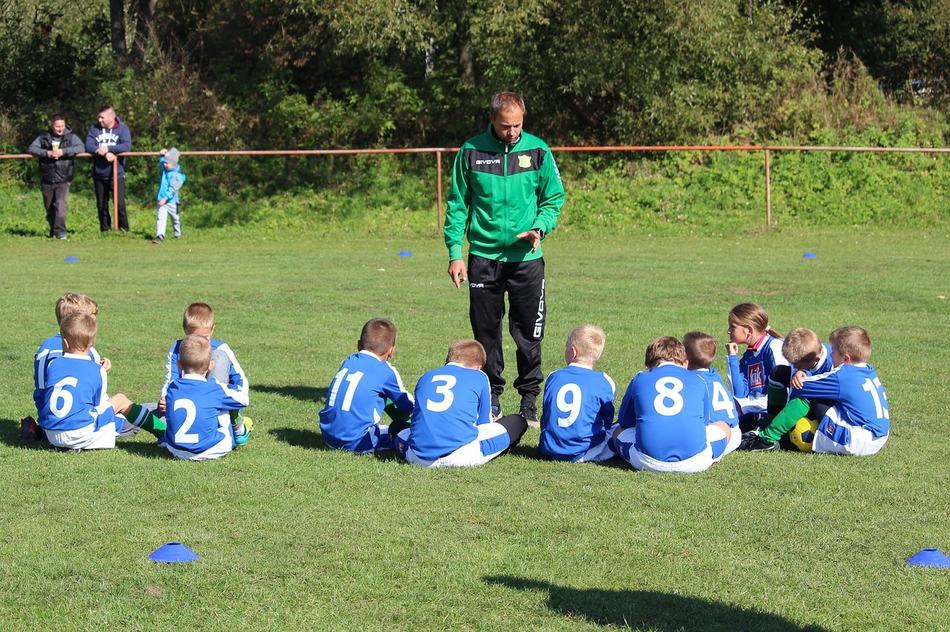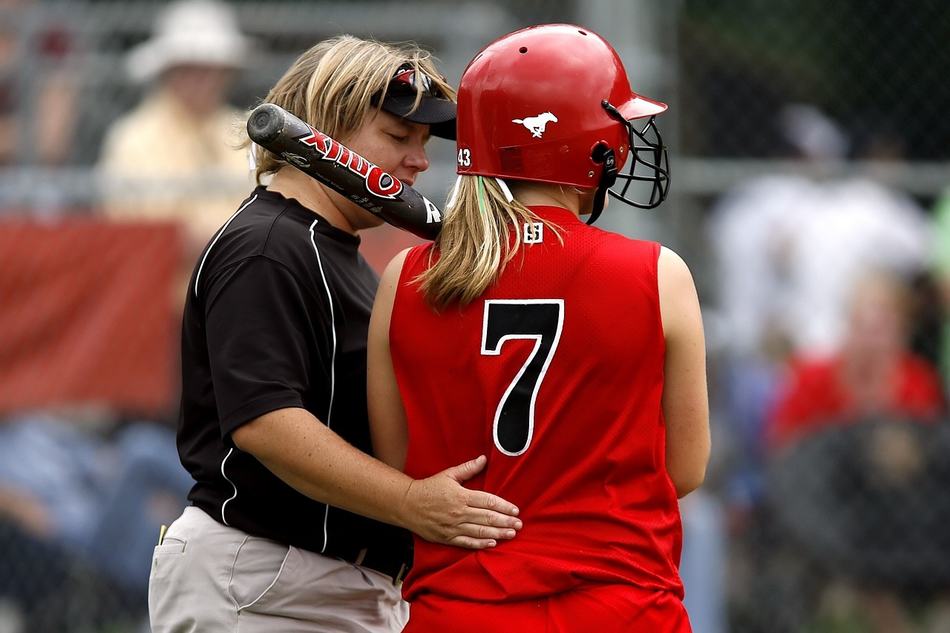As a parent, you know that a well-rounded education is about more than just academics. By encouraging your child’s participation in sports you know you are promoting their physical and emotional health. But you may be wondering how to best support the mental and emotional development of your young athlete.
What is sports psychology? Sports psychology is a subset of psychology that focuses on the health and performance of athletes. Sports psychology also studies the social and developmental elements of sports to improve mindset and motivation. Findings have shown that children derive many benefits from participating in sports, especially when they are supported by their parents.

Why are sports such a big part of schooling?
The origins of today’s physical education and extra-curricular school sports have their roots in the 19th-century tradition of competitive sports in private schools, which were then almost exclusively boys’ schools. At the same time, physical exercises used in the military began to filter into both private and public schools. At the time, sports were considered a healthy outlet for growing minds and bodies. They still are today.
In the United States, the tradition of student-organized sports was formalized in the late 1800s with the establishment of the New York Public Schools Athletic League in 1903, followed by similar organizations in cities around the country. Gradually, informal competitions were formalized and programs were expanded to include girls. By the mid-20th century, sports and physical education were central elements of the educational system for all children. Today, physical education is a compulsory part of the school curriculum in most states and in many countries around the world.
Why is sports psychology important?
You may be thinking, it’s just school sports. What’s the big deal? It’s true that your child is not playing in the World Cup, but remember, that the Little League match may be just as important to her as a World Cup final is to a professional. The psychological impact of sport pressures like wins and losses can be great. They are also a fantastic opportunity to learn about how to handle adversity, loss, and victory.
Nicholas Holt (2008, p.2), an expert in youth sports and development, points out that participation in sports is often associated with positive social and developmental outcomes for children and adolescents, but those positive outcomes are not automatic and require support.
So, whether it’s the World Cup or Little League, it’s vital that you apply the principles of sports psychology to provide your budding athlete with the support she needs to get the best out of her sporting experience.
The Effects of Sports on Child Development
Are the benefits of sports for kids really that great? The short answer is yes. Early promoters of school sports thought it improved self-discipline and reduced anti-social behavior, and modern studies are proving them right. Regular participation in sports brings plenty of benefits for your child’s physical, mental and emotional health – many of them can be lifelong.
Today, the first physical benefit of sport that comes to mind may be preventing obesity. With a worldwide obesity epidemic causing panic in many circles, childhood sport is often cited as an antidote (Holt,p. 39). The World Health Organization recommends that children and teenagers between the ages of 5 and 17 should perform at least 60 minutes of physical activity daily, including strength-building activities at least three times per week (WHO, 2018).
The good news is, sports participation can help combat the unhealthy eating habits and inactive lifestyle associated with obesity (Merkel, p.4) and it brings other benefits as well: regular exercise reduces the risk of heart disease, diabetes, and even cancer. But physical health is only part of the story.
Team sports like basketball provide an opportunity for your child to learn a host of social skills. The court is a metaphor for daily life, where conflicts must be resolved, decisions made and individuals must work as a team towards a common goal. For children, who are just beginning to learn these abstract social skills, being part of a team that is clearly defined by matching uniforms and working towards goals that are literally counted out on a scoreboard act as a usefully concrete starting point.
What’s more, the demands of training encourage self-discipline and are a great way for your child to learn to set goals, and put in the time and effort to achieve them. There are even indications that regular participation in sports can improve academic performance (Rosewater, 2009).
Creating active habits at a young age will set your child up for better physical health later. Active children are more likely to become active adults, and helping your child learn the ‘language’ of training sessions, post-competition analyses, and teamwork means he’s more likely to feel comfortable picking up a new sport in the future. Studies have even shown that an active childhood correlates with improved cognition and physical health later in life, even if your active child grows into a sedentary adult (Aberg, p.106) & (Dohle & Wasink, p. 38).
Can sports help with mental health issues like depression?
It’s a much-repeated adage that exercise releases endorphins which help promote a sense of wellbeing and stave off depression. The real effectiveness of exercise against depression is still somewhat up for debate, with at least one study (Cooney, 2013) suggesting that exercise is only moderately effective for reducing symptoms of depression. So, it’s probably best not to rely on sports to alleviate mental health concerns.
But without expecting sports to be a cure-all for the mental health issues that are increasingly affecting our children, encouraging your child to join a softball team will keep her away from her computer and cellphone for an extra few hours every week, and can improve her sense of belonging and self-esteem.
Instilling Confidence and Success in Young Athletes

So you’ve decided your child has the potential to be the next Serena Williams – or at least that a lifestyle that includes sports will be better for her. This is a great opportunity to empower her to start to make her own decisions. You are in a position to be her guide and to help her build the mental toughness she’ll need to succeed. Here are some tips to help:
Don’t Push Too Hard, Too Soon
Venus and Serena Williams were trained by their father to be tennis pros almost as soon as they could walk, and became professional players in their early teens. It paid off! A lifetime of training produced two of the greatest tennis players the world has ever seen. Their achievement might be your parental dream – but before you initiate your toddler in the art of the perfect serve, ask yourself how many three-year-old would-be tennis stars you have never heard of.
Figures from the National Collegiate Athletic Association show that less than 1% of high school athletes reach professional leagues in basketball, baseball, football, soccer or ice hockey (Georgia Career Information Center). The other 99% risk life, limb, and grades for an impossible future.
Pushing too hard too soon can also harm your young star. The recommended age for children to start playing organized team sports is 6 years, when they are old enough to handle it physically, psychologically and mentally (Merkel, 2013). Pressuring your child to compete in sports before she’s ready can lead to anxiety and might cause her to drop the sport as soon as she can, losing the benefits it might bring her later.
The allure of a professional career also leads to dangerous pressure on young athletes to dope. Performance-enhancing drugs are increasingly common in amateur and school sport, and consumption carries serious long-term health implications. Steroid use in young men can cause stunted growth, premature balding, increased levels of aggression, infertility and heart problems.
The takeaway? There’s no question that creating a dedicated athlete requires hard work and perseverance, but it’s a fine balance. Before you start planning your child’s future as a professional ice skater, ask yourself whether the chance of reaching the top is worth the hundreds of hours that you and she will spend at the ice rink, the birthday parties missed, the inevitable curtailing of her freedom to simply be a child. Do your research about the sport, get honest opinions about her talent, and do your best to see past your loving bias.
Be the Supporter Your Kid Needs
This means leaving your own ego and ambitions at home. Sports for your child should be, first and foremost, fun. A positive experience now means he’s more likely to make sports a part of his life in the long term. Studies have shown that fun and participation are the most important part of most children’s sporting experience, whereas parents place more emphasis on performance and winning (Merkel, 2013).
This is not to say that you shouldn’t be actively involved in your child’s sporting career. Children whose parents are interested in and supportive of their child’s athletic endeavors enjoy it more. Young athletes whose parents praise and encourage them tend to perform better. But when parents are too involved, it can cause stress and burnout for their children (Holt, et. al, p. 9).
Try asking yourself these questions to separate your ambition from his:
- Is success in this sport your dream or his?
- Assuming your child does not turn out to be the next Usain Bolt, who will be more disappointed?
- Are sports a form of work or a form of pleasure for your child?
- Does your child have time to play in ways that are not related to this sport?
- Is the trophy worth your child’s sacrifice? Would he give the same answer as you?
Help Your Player Build Mental Toughness…
In sports psychology, mental toughness means the ability to endure fatigue, setbacks and even physical pain, to fight against the odds to reach your goal, whether it’s completing an ultra-endurance race or beating a record. It’s an essential part of sporting success, and you can help your child to develop it from a young age.
- Teach him that losses are a learning opportunity and encourage him to try again when he feels he has failed.
- Help him build the philosophy that gains in sports are earned through consistent effort, which means attending practice even when he doesn’t want to, and treating training as an opportunity to improve his abilities.
- Encourage him to be self-aware, analyzing his performance constructively to identify areas of strength and weakness.
- Praise him not only when he wins, but when he has tried hard.
…But Don’t be ‘THAT’ Parent

Anyone who has attended a school soccer match is familiar with the red-faced father screaming from the sidelines, apparently more invested in the outcome of the game than anyone on either team. Studies have shown that up to 34% of observed comments by parents at matches are negative (Holt, et. al., p. 665).
This is the wrong way to support your young athlete. Praising what your child is doing right will improve his confidence and motivation. Negative feedback, and attempts to control his performance from the sidelines, will undermine his self-belief and is detrimental to not only his performance but his behavior and your relationship as a whole.
So next time you’re tempted to yell during a match or pick your child’s performance apart in the post-match review, remember this:
- Distinguish between your feelings and your kid’s. Just because you’re disappointed in his performance, doesn’t mean he is or should be.
- Don’t amplify his negative feelings about poor performance by expressing them yourself.
- Recognize the limits of your expertise. You may feel like an expert after you’ve watched your fiftieth soccer match, but you’re not the coach, you’re the parent (unless of course, you are the coach).
- Don’t pretend he’s the team star if he isn’t, but try positive reinforcement for what he’s doing right, rather than focusing on what he does wrong.
Building mental toughness is about creating sustainable habits and long-term discipline, not bullying your child to perform.
Balance the Costs of Participation (They’re Not Just Financial)
Sports can be prohibitively expensive. Even if you aren’t paying for a membership to an out-of-school club, you may be expected to fork out for baseball bats, hockey sticks, shin guards, shoulder pads…the list goes on and on.
Even bare-bones athletics requires expensive footwear and custom-made shirts and shorts – and young kids quickly grow out of these expensive glad rags. Before you get carried away by your child’s enthusiasm to join the new team everyone is raving about, consider whether you can afford the experiment – and get strategic.
Most clubs allow a couple of sessions free of charge before you decide to pay. Borrow equipment for the first few sessions and save the big investment for a few months down the line. When you take the plunge, look out for second-hand sports equipment that will be easy to sell if she decides she doesn’t need a glove because she never wants to play softball again.
Besides the strain on your bank account, consider the time and energy demands of supporting your child’s amateur career. Pre-teens don’t get themselves out of bed and across town for early morning swimming training. It’s up to you to keep track of training sessions and make sure your child gets there and back safely and on time. You may find yourself dedicating Saturday mornings to soccer matches in all weather, and driving your child and her friends to far-flung meets. Before you commit your child to a full sports calendar, consider that you are committing yourself too, and be prepared for the obligation that brings.
Keep It In Perspective
Between academic requirements, other forms of enrichment like music, cultural activities, and the drive to perform in sports, most children are under as much daily pressure as you are during a stressful workweek. As the person responsible for protecting your child’s best interests, it’s up to you to maintain a healthy sense of perspective.
- Make time in your child’s life for interests that are different from her sport (like art or music) and for unscheduled fun that doesn’t require her to perform or achieve.
- Build and maintain strong lines of communication between your child, her coaches, her teachers and the other adults in her sporting life and beyond.
- Moderate the pressures and expectations placed on her, and keep an eye out for burnout.
- Check-in with your child often about what she wants. You may have committed to a twenty-year volleyball career, but she’s still learning about herself, and things might change. It’s her life, not yours. It is your job to challenge her and push her in the right direction, but she’s not obligated to fulfill your ambitions.
What if my child just isn’t athletic?
There are children (as there are adults) who simply cannot find enjoyment in sweating over the track or chasing a ball around a field. While it’s a great idea to encourage your non-athletic child to push the boundaries of her comfort zone, realize that forcing her to participate in a hated activity will do neither of you much good.

Many of the social benefits that come from participating in team sports can be gained from other activities as well: think of the self-discipline needed to become a champion chess player, the physical skill that goes into dancing, or the negotiation skills she’ll learn on a debate team. If sport is really not her thing, encourage your child to get involved in another extra-curricular activity. In my home each of my kids participate in three forms of enrichment; academic, athletic, and musical.
Final Thought: It’s About Balance
It can be difficult to remember that your child is her own person with her own talents, interests, and path to tread. It’s a philosophical dilemma that will color all your decisions as her parent, and sport is no different. While it is your job to challenge her there is a fine line between encouragement and pushing too hard. Make sure that she buys in to what you are doing.
If it’s a challenge to get out of bed and get to practice that’s one thing. But, if getting there, being there, and coming home are all a challenge then maybe you should reconsider your decision.
In the end, it’s all about maintaining a healthy balance. Whether you find yourself parenting a budding young star or a classic bookworm, avoid the extremes, reign in your ambitions, and maintain a sensible, moderate approach to create a healthy and well-rounded life for your child.
REFERENCES
Aberg, M.A.I. et al “Cardiovascular fitness is associated with cognition in young adulthood”. In Proceedings of the National Academy of Sciences of the United States of America (2009).
Cooney, G.M. et al. “Exercise for depression”. In Cochrane Systematic Review (2013).
Dohle, S. and Wasink, B. “Fit in 50 years: participation in high school sports best predicts one’s physical activity after Age 70”. BMC Public Health (2013).
Georgia Career Information Center “From High School to Pro – How Many Will Go?” (2006) Georgia State University. Retrieved from
Holt, N.L. (ed.) (2008) Positive Youth Development Through Sport. London and New York: Routledge.
Holt, N.L. et al. “Parental involvement in competitive youth sport settings”. In Psychology of Sport and Exercise (2008).
Merkel, D.L. “Youth sport: positive and negative impact on young athletes”. In Open Access Journal of Sports Medicine (2013).
Rosewater, A. “Learning to Play and Playing to Learn: Organized Sports and Educational Outcome”. In Education Digest: Essential Readings Condensed for Quick Review (2009, 75). Retrieved from World Health Organization “Physical activity” (2018).
Photo Credits:
Feature image by Keith Johnston from Pixabay
Soccer team image by 7721622 from Pixabay
Field hockey image by K.M. Klemencic on flickr.com: https://creativecommons.org/licenses/by/2.0/
Angry parent image by Ally Middleton on flickr.com: https://creativecommons.org/licenses/by/2.0/
Softball player #7 image by Keith Johnston from Pixabay
Recent Posts
Athletes, listen up! Do you have a closet full of old jerseys, sweatpants, and tees that you just can't seem to part with? Well, dust them off, because you're sitting on a goldmine of fashion...
You may have heard, or you may have noticed, that there's been a change to the rule about double contact in volleyball. In 2022, an experimental rule change began to be implemented, where the double...
